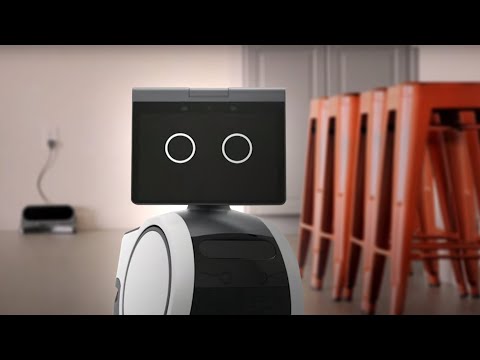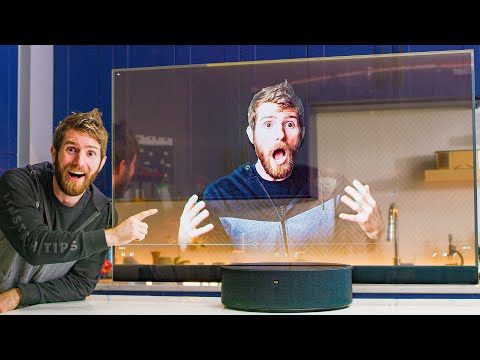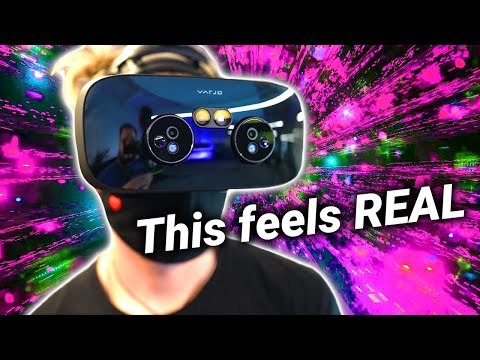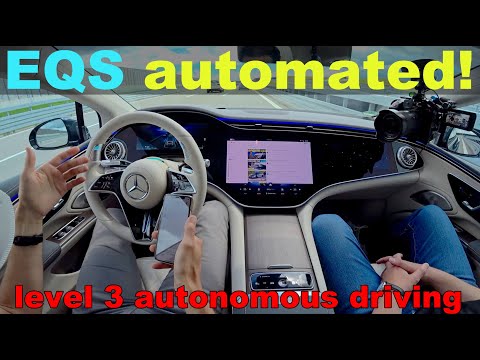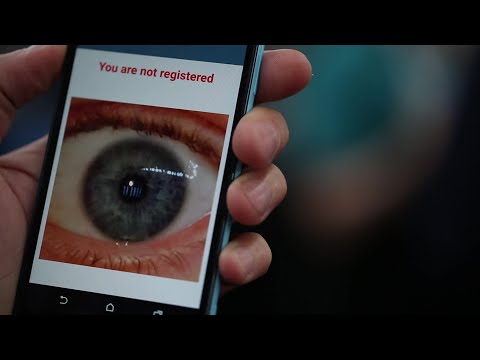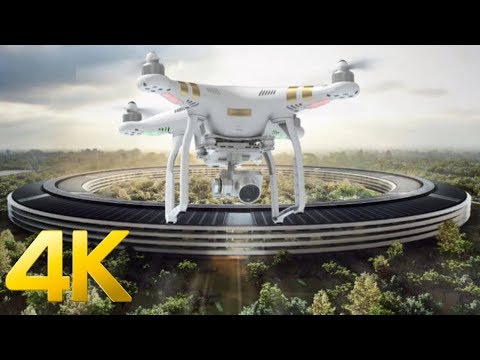With the number of technological advancements we’ve made in recent years, the possibilities for the future are infinite. Maybe that dystopian future controlled by robots isn’t too far off after all… In this day and age, we have robots that can complete tasks of any kind in your home. The iRobot will assist you in vacuuming. Keurig will provide you with that oh-so-necessary cup of Joe before work, and you only have to turn to your smart speakers to tell you the weather.
9 Transparent TV Screens
We’ve seen them in about every futuristic movie out there, from Divergent to The Maze Runner and even Iron Man when using Jarvis. Those with a fab for futuristic screens of all types will be pleased to know that multiple companies are rolling out their own versions of the sought-after transparent screen televisions. Watch this video on YouTube Among the top brands is LG, which has 55-inch OLED screens that are, you guessed it, transparent. This screen by LG is mainly geared to be used as a commercial storefront display. However, it is only a matter of time before they start hitting the consumer market, and you’ll be able to have one right in your living room. Another major brand in the clear TV market is Chinese manufacturer Xiaomi, which released a transparent TV for home use back in 2020. Although the hefty price tag of $7,200 made it basically out of the question for any sane person, the TV set was still a marvel of technology. Similar to LG’s version, it is a 55-inch OLED panel capable of being fully transparent when in use or turned off.[2]
8 VR Headsets
Who doesn’t love the ideas of a world with endless possibilities, as seen through the headsets worn by characters in Ready Player One? Indeed, with some of the events that are happening in the real world, wouldn’t it be nice to have an escape from reality? With the invention of virtual reality headsets back in 1968, this was now possible. Although it wouldn’t become popular until the mid-2010s, VR is now widely used today for both commercial and entertainment purposes. Boosted by the Covid-19 pandemic, total virtual and augmented reality headset sales reached 11.2 million units just last year. Virtual reality is likely the future of gaming, as it provides a much more immersive experience for the user. Not only that, it provides great commercial uses as both consumers and producers can have more in-depth interactions with their products through VR.[3]
7 Self-Driving Cars
A bit of an obvious one but necessary to put in nonetheless. We all know that the primary purpose of robots is to make one’s life easier. In arguably the most gruesome part of the day, sitting in traffic for your morning commute, wouldn’t it be better if you could just sit back and relax while the car does all the work for you? A car’s ability to do this is nearly here. With Tesla’s autopilot feature, one of the most advanced in the industry, users can just sit back while the car can accelerate, slow down, or even change lanes for you. There’s no doubt many people would love to use this feature in heavy traffic or an open stretch of road. The real question is whether or not you would trust the system after the various incidents that have occurred while people were using autopilot and not paying attention. Another company at the forefront of the self-driving car industry is Mercedes-Benz, the first company to sell a level-3 autonomous vehicle in 2022. Even on their home page for autonomous research, they claim, “Today’s discussion no longer revolves around whether the technology will deliver on its promise but whether people want what the technology can deliver.”[4]
6 Smart Glasses
Wearable technology has had an upward trend in recent years, especially with products like the Apple Watch and self-lacing shoes. Now, that technology has moved elsewhere, to the inner parts of eyeglass lenses. Watch this video on YouTube There has been a fair share of companies that have taken a step toward making various types of smart glasses. Some take pictures, others play music, but the ones that are really from the future are the glasses that can display information on the lenses right in front of your eyes. Companies such as Google have created smart glasses that will make you look like a cyborg. However, the average consumer wants smart glasses which could pass as normal ones. Many of the smart glasses of today use augmented reality features so the user can watch movies, look at navigation instructions, and do other small tasks. Glasses such as the Vusik Blade also have built-in cameras. The downside is that they are expensive and chunky. Apple has been rumored to be entering the smart glasses market sometime in the near future. With the amount of AR technology that they are bringing into their current product lineup, this prediction doesn’t seem too unrealistic.[5]
5 3D Printers
Having the ability to make basically anything in a matter of a few hours seems like something that can only be accomplished with the highest level of industrial machinery. In the early 2010s, 3D printers were still extremely expensive for hobbyists and private consumers. Premium features such as heated printing beds and a thinner filament were only available on higher-end models. Watch this video on YouTube When Creality entered the market in 2018 with its Ender product line, the standards for hobbyist 3D printing were set. This printer had all the features of higher-end competitors, but its big selling point was the price. Now, consumers could purchase the Ender 3 for under $200, something that was unheard of at the time of its release. Nonetheless, 3D printing technology is something that has revolutionized almost every industry. Parts of any proportion or size can be readily available in a couple of hours for very low costs. (LINK 16) As long as you learn the software to use these machines from the future, the possibilities that can be created with 3D printers really are endless.[6]
4 Iris Scanning Smartphones
It’s always cool when we see a movie character approach a door that leads to a top-secret room, and then they lean into the keypad and have their retinas scanned. Nowadays, features like this exist in the most abundant pieces of technology that we use: our smartphones! Chinese phone maker Fujitsu was the first to introduce iris scanning to a smartphone in 2015. Since then, it hasn’t been an incredibly popular feature, especially with recent phones, but it has been one of the coolest. Samsung made this feature available on its Galaxy S9 and S9+ models, which were the best-selling phones when they were released. Biometric passcodes such as fingerprint readers or facial recognition are featured on nearly every new smartphone today, especially the flagship models. Despite more companies choosing those methods over iris scanning, it is still a cool feature that is usually only seen in sci-fi movies before coming to the consumer phone market.[7]
3 Smart Refrigerators
Here’s a piece of history I bet you didn’t know: Refrigerators that can connect to the internet have been around since the late ’90s. In fact, one of the first newspaper references to smart refrigerators was claiming that you could “live like the Jetsons.” But really, an internet-connected fridge? What’s the point? The smart fridges of today can display useful information such as the weather outside or current news. The most useful feature they offer is the ability to see the items inside without having to open the door. Although this feature will really not save you any time at all (since by the time you command the fridge to take a photo, you could have already opened the door), it is still cool to see a typical household item be given a neat element of technology. After all, who wouldn’t want to have the ability to watch TV or movies on your fridge? Overall, these fridges haven’t been popular since every feature available on them is also available on that smartphone you always keep in your pocket. But who knows? Maybe one day, they’ll be smart enough to do the grocery shopping for you?[8]
2 Smart…Rings?
Adding to the category of wearable technology from a dystopian future are wearable rings. Sound odd? Yeah, I agree. Most of the smart rings on the market have features similar to your average FitBit. They can monitor heart rate and even your blood oxygen levels. The cool factor in smart rings comes in the other features it has. Monitoring health is a pretty good start, but the ability to make phone calls in just a tiny ring is a step up. With the ORII smart ring, you can do just that. Although a little larger than other rings in physical size, it could be advantageous for those who may not like wearing smartwatches to have the ability to make phone calls with a tiny ring on their finger. Another cool thing this ring can do is turn off smart lights, open smart blinds, and more through the use of gestures. An all-in-one ring that can do just as much as a phone in a form that’s a fraction of the size. Now that is some cool technology.[9]
1 Live Video Drones
The concept of drones itself seems to stem directly from a dystopian future. Drones that can make deliveries, security drones, drones that can go places humans can’t—the list goes on and on. Drones have recently become extremely popular with consumers and hobbyists, as they can be purchased for cheap and are a lot of fun for some people to build. In this day and age, drones are already changing the industry. They can look and see where wildfires are spreading, survey and spray crops on farms, and even assist law enforcement at large events. The technology and agility in quadcopters are very impressive, allowing them to have many different uses. Not so long ago, drones were only seen in predictions of what the future would look like. However, nowadays, drones are everywhere and readily available for people to buy at little cost.[10]
